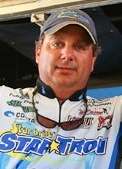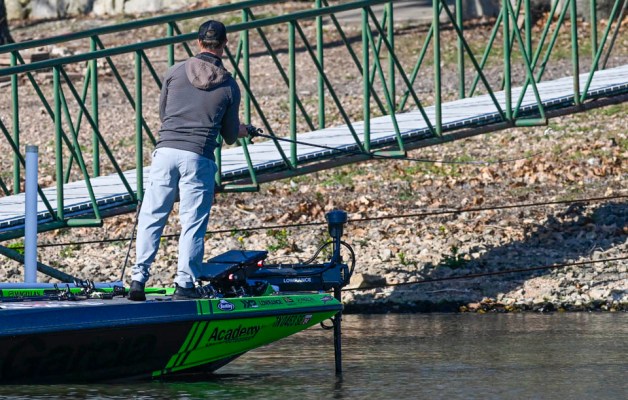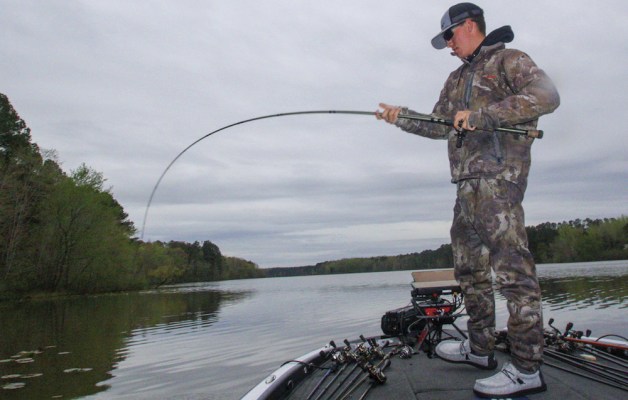Ever notice how time flies by on those tournament days when you’re struggling to finish a limit or trying to catch up after a bad first day? Running from spot to spot … hoping to stumble into a wad of fish … digging long-forgotten baits out of the bottom of the tackle bins in hopes that you might “show them something different” … trying to catch one last fish to stay in the hunt. Tick, tock. Tick, tock.
Ever notice how slow the clock ticks when you’ve busted a big sack in the first few hours and really want to head to the scales — wondering if you should head in early, just in case you have mechanical issues? But what if you get beat by an ounce or two? Could you have culled one more time? Don’t go too soon. Tick, tock. Tick, tock.
Of course, eight hours is eight hours no matter how your tournament day is going. So why is it that some days feel so different than others?
I really started thinking about this after the Southern Open at Lake Toho. A little gamble to start the second day put me behind schedule. I spent three hours fishing offshore with nothing to show for it. I finally went back to the matted vegetation, picked up my St. Croix flipping stick and caught three small keepers and then a solid 6-10. Then I heard the clock ticking away. I needed one more good bite to finish my limit — one bite! I rushed. I hurried. I changed locations. It never happened.
But that’s not the point. The point is I lost control of time.
When you’re on, time moves slowly. You’re in control. Just like a great baseball hitter, you see the pitch, the spin. You know what’s coming, and you’re ready for it. You’re in "the zone." When you’re off, the day is past you before you know it happened. You hear the pitch hit the catcher’s mitt, the umpire yells something, and you walk away.
The great ones in any sport have mastered time. They slow the world down. They are in control of time, not controlled by it. Michael Jordan did it on the basketball court. Peyton Manning does it on the football field. Tournament fishing is no different than other sports that way. Kevin VanDam, Rick Clunn, Aaron Martens, Denny Brauer — they all do it. That’s why they’ve won so many tournaments, Bassmaster Classics and Angler of the Year titles. Clunn has commented about it extensively.
Get in the zone where you are in control of time, and you are going to be very difficult to beat.
So the real question is how do you control time and slow the world around you down? A quick search of my tournament results will tell you that I’ve not yet mastered time. Sometimes I get it; sometimes I don’t. I’d argue that no one gets it right every time, but there are those that get close more often than others, and they're the guys who consistently put money in bank after weigh-in.
Being truly in “the zone” requires the perfect intersection of opportunity, preparation and execution. In my last column, we talked about game planning. Bottom line, game planning is about putting yourself in the right area, at the right time to have opportunity. Your knowledge of the lake, the success of your pre-tournament practice and a little luck will determine your opportunity each competition day.
Execution is a direct function of your skill level, your time spent practicing and perfecting techniques and (naturally) your time on the water. At the weekend level of the sport, you’re ability to execute can really set you apart from the competition, but at the higher levels of the game, there is little difference between anglers in their ability to execute. Perfecting techniques and presentations is absolutely critical, but you’re competition will not let you stay ahead long on execution alone.
Preparation is the key to getting in the zone. Preparation prevents panic. Preparation promotes focus. Preparation can separate you from the competition and assure your spot in the check line.
So now you’re thinking, I’ve put fresh line on the reels, sharpened my hooks, filled the boat with gas and oil … what else is there? Well that’s a start but, stay tuned, next time we will explore the idea of preparation a lot further.





